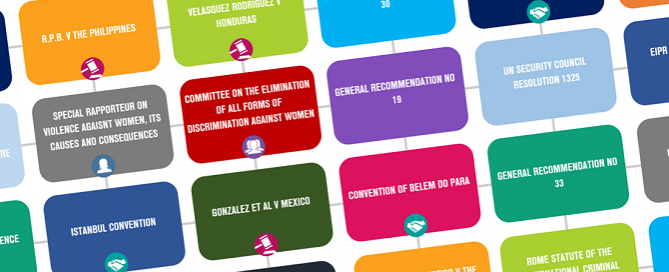In Visibility: Faiza Jama Mohamed
The ‘In Visibility’ interview series celebrates the inspiring feminists who fight for gender equality and the elimination of violence against women.
Faiza Jama Mohamed is Africa Regional Director of Equality Now. She has more than 20 years of experience working with international organisations and has been instrumental in building several women’s organisations with a focus on promoting peace, gender equality and advocacy for women’s rights. Prior to her current position, Faiza was an active member of the women’s movement in Somalia. In 1998, she received the Hundred Heroines Award in recognition of her activism in support of the human rights of Somali women. In 2008, she was awarded the Hunger Project’s Africa Prize for Leadership for Sustainable End of Hunger. Faiza serves on numerous committees and boards dealing with women’s rights issues and closely supports the work of the African Union Commission.
Her mantra: “Always be optimistic! Obstacles or challenges are temporary and they can be overcome with determination and persistent effort!”
What is one reading, film, artwork you would recommend to others interested in supporting action to achieve gender equality?
Equality Now’s report on rape laws, “The World’s Shame – The Global Rape Epidemic” which will be out soon. It is an analysis of surveys on laws on rape and sexual assault from 82 jurisdictions and shows how laws around the world are failing to protect women and girls from sexual violence.
______________
What do you think has been the most important legal case addressing violence against women?
Maria da Penha’s Case.
[Editor’s note. Maria Da Penha Maia Fernandes v. Brazil (2001) is a case concerning women’s rights to: equal protection under the law without discrimination, a fair trial, justice and judicial protection – as well as state obligation to prevent, punish and eradicate violence […]


